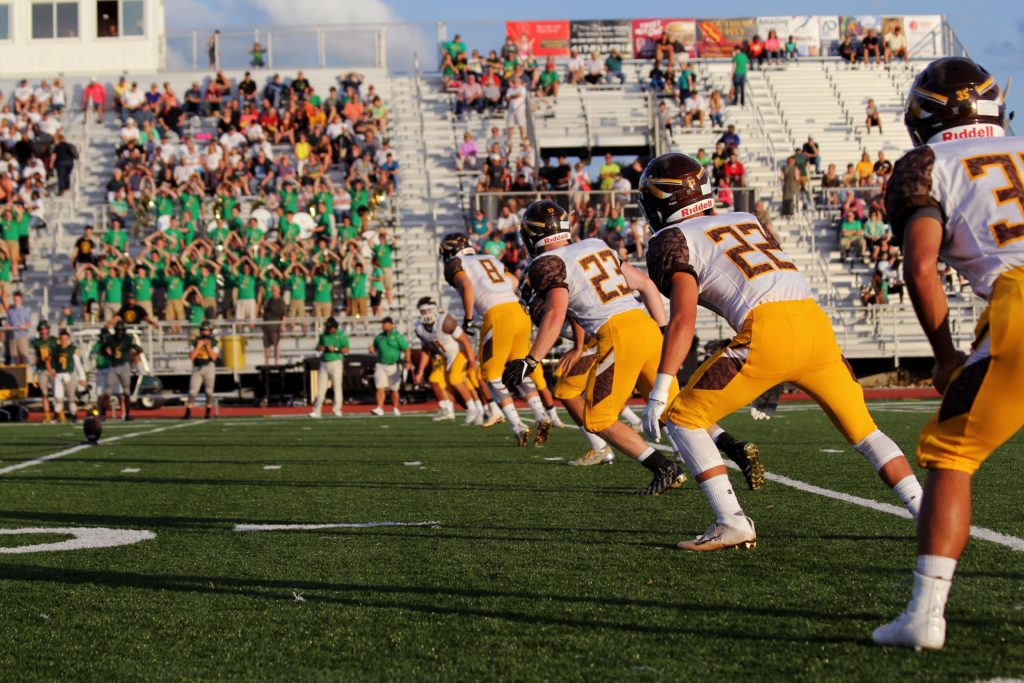In the midst of March Madness, it’s easy to forget that a vast majority of student-athletes aren’t in the spotlight. There are 460,000 of them in the NCAA across 24 sports, balancing practices, games, and meets with all the other things a college student deals with – studying, friends, life back home, and often jobs.
Big tournaments and national championship games highlight the central role athletics play in many schools’ campus culture. But they also obscure the experience of most student-athletes, who make up 2.3% of the 19.9 million Americans enrolled in college as of fall 2018.

Massive amounts of time and money are poured into athletic programs around the country. For the few, college sports are a bit like an unpaid internship for professional leagues. And for everyone else, they’re hopefully enjoyable and enriching aspects of the college experience, associated with values like determination, teamwork, and honesty. In either case, there’s no detaching American colleges from their athletic programs.
The sports industry is worth $73.5 billion annually in North America, putting ever-growing pressure on teams to win – and push physical boundaries constantly. Sport science and sport psychology focus on helping athletes get better at their sport, but only recently have researchers begun looking at the impact of sports on an athlete’s mindset – not the other way around. Most notably, a breakthrough in our understanding of concussions ten years ago led to a series of studies demonstrating how consistently and traumatically concussions can affect the brains of NFL players. But these concussion studies were abnormal in their subject matter, and the amount of public attention they got.

All of this pressure to achieve trickles down to college athletics, whether a student-athlete is trying to go pro or emulating professional athletes in their never-ending efforts to perform at a higher level. So it’s strange that – as mental health has come to occupy a central place in discussions about our wellbeing, especially on campuses – there’s so little research on the mental health of student-athletes.
One important exception, though, is a 2017 study on obsessive-compulsive disorder (OCD) in college athletes – the first of its kind – conducted by Lisa Cromer, PhD; Emily Kaier, MA; Joanne Davis, PhD; Kathleen Stunk, APRN, CNS; and S. Evelyn Stewart, MD, who published it in the American Journal of Psychiatry.

The researchers screened 269 athletes in NCAA Division I athletic programs and found that 20.1% screened positive for OCD on an initial questionnaire. In year 2, encouraged to investigate further, they offered two questionnaires to 270 student-athletes. 16.7% of these participants screened positive for OCD, and 5.2% met full criteria.
Their average age of symptom onset, consistent with data for the general population, was 14.3 years old. But what’s remarkable about these results is the prevalence of full OCD symptomology. Compared to a general prevalence of around 2.3%, that figure of 5.2% means student-athletes exhibited OCD symptoms at over two times the rate of the general population.

Even more remarkable, though, is that none of the 14 athletes meeting full OCD criteria had ever been diagnosed. The researchers wisely refrain from trying to explain any of these data, but suggest that “physicians should remain vigilant for OCD in athletes given its association with distress and its treatment potential.”
This “association with distress” means student-athletes with untreated OCD are more likely to develop comorbid conditions like depression, panic disorder, and substance use disorders. Studies suggest over 60% of people with OCD have at least one major depressive episode, and about 30% develop a substance use disorder.
As the symptoms of untreated OCD create more and more distress, people are often left hopeless and may turn to self-medication with drugs or alcohol. These comorbid conditions can spiral rapidly, and a college environment might exacerbate them. But by identifying and treating OCD early on, therapists with special training can greatly reduce the likelihood that student-athletes develop comorbidities that diminish their quality of life, put them in danger, and make them at risk of dropping out.
Student-athletes might be determined, hard-working people, balancing an impressive number of things at once. But they’re also prone to the same mental health issues — sometimes, it seems, at significantly higher rates than everyone else. The responsibility doesn’t just lie in physicians’ hands: by remaining vigilant, we can find ways to provide effective care to every college athlete with OCD.
If you or someone you know is struggling with OCD, schedule a free call today with the NOCD clinical team to learn more about how a licensed therapist can help. At NOCD, all therapists specialize in OCD and receive ERP-specific training. ERP is most effective when the therapist conducting the treatment has experience with OCD and training in ERP.

